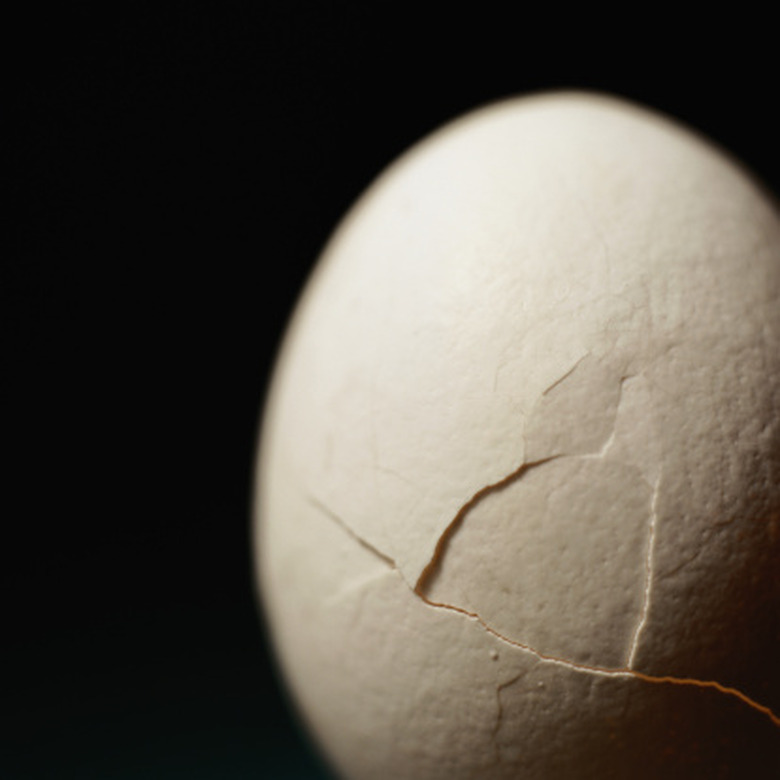How To Write A Hypothesis For An Egg Drop Science Project
For a classical science experiment such as the egg drop, it is important to develop a proper hypothesis. A hypothesis is an educated explanation made with limited evidence as a starting point for further investigation. Write a hypothesis before beginning the experiment. An egg-drop project requires students to create containers that hold an egg without cracking if the container and egg are dropped from a certain height. The rules regarding the container and the height dropped depend on the rules each teacher sets. A proper hypothesis lists the parameters and predicts what will happen if those limits are met.
Step 1
Think about how easily an egg breaks if an egg carton is dropped. From what height will it break and from what height will it remain intact?
Step 2
Ask yourself what padding would ensure the egg is protected from cracking when dropped.
Step 3
Decide on appropriate test parameters for the egg container, such as what materials to use, how much material to use, and from what height drop the egg.
Step 4
Write a hypothesis that indicates which container parameters and height you have decided will keep the egg intact when dropped. Write your hypothesis as an if-then statement that will be answered by your experiment.
Cite This Article
MLA
Meem, Sarah. "How To Write A Hypothesis For An Egg Drop Science Project" sciencing.com, https://www.sciencing.com/write-egg-drop-science-project-8421797/. 24 April 2017.
APA
Meem, Sarah. (2017, April 24). How To Write A Hypothesis For An Egg Drop Science Project. sciencing.com. Retrieved from https://www.sciencing.com/write-egg-drop-science-project-8421797/
Chicago
Meem, Sarah. How To Write A Hypothesis For An Egg Drop Science Project last modified August 30, 2022. https://www.sciencing.com/write-egg-drop-science-project-8421797/
